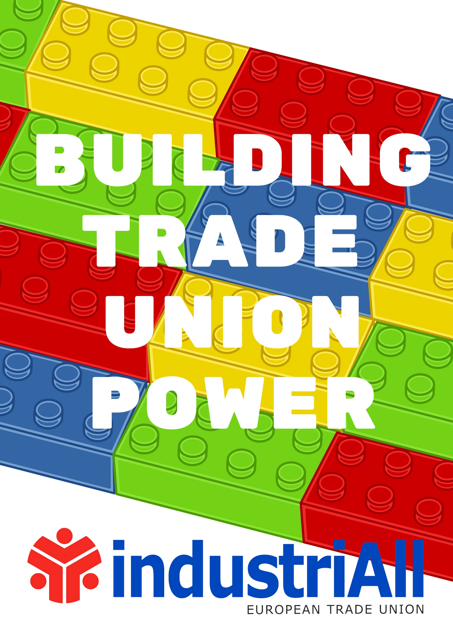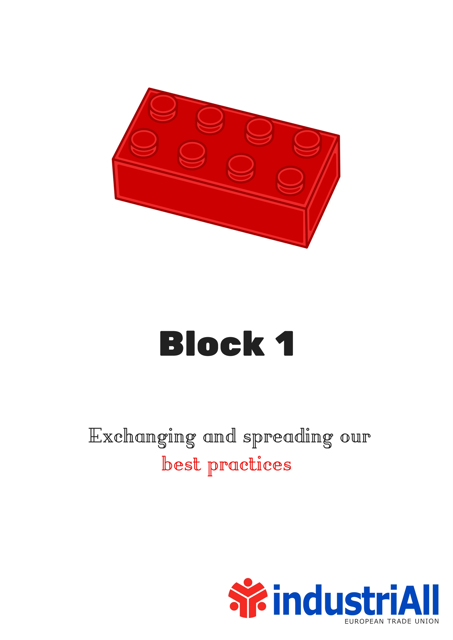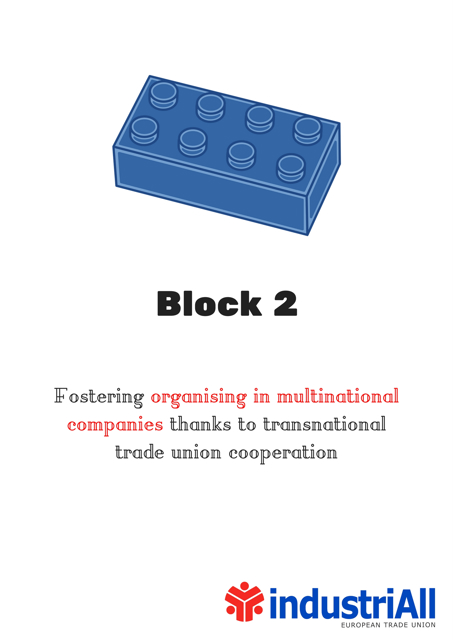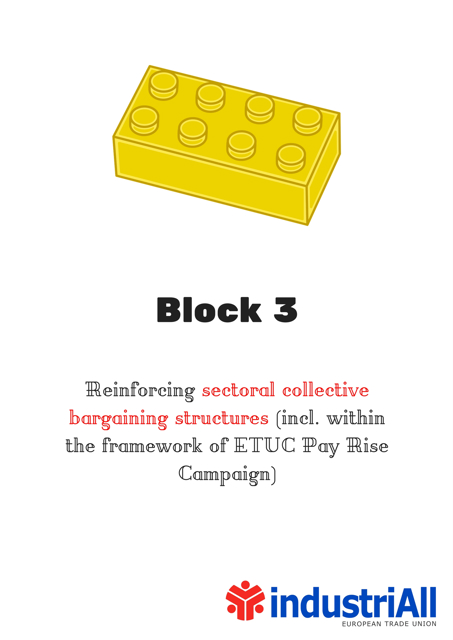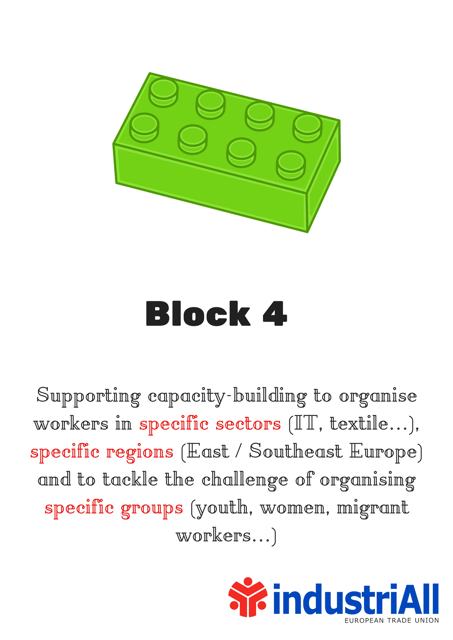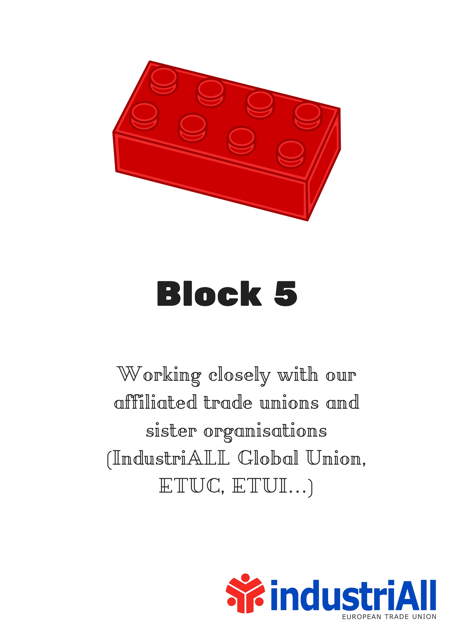ensuring that organising workers throughout Europe become fully part of our DNA and daily work and not just a matter to be dealt with by some expert organisers was a revolutionary step we took in 2016. As ambitious as it could be for a European-level organisation, I am glad to see that we are striving to fulfil our commitment to find innovation solutions to build strong trade unions, brick by brick
At the industriAll Europe Congress in Madrid in 2016, Building Trade Union Power became a top priority for our European Trade Union Federation. Since then, almost 200 affiliated trade organisations have committed to work more strategically together on organising workers across borders to build up strong national trade unions. In the past year and a half, the industriAll Europe Building Trade Union Power (BTUP) Taskforce has laid the foundations by developing an Action Plan composed of 5 Building Blocks:
Block #1: Exchanging and spreading our best practices
Block #2: Fostering organising in multinational companies thanks to transnational trade union cooperation
Block #3: Reinforcing sectoral collective bargaining structures (incl. within the framework of ETUC Pay Rise Campaign)
Block #4: Supporting capacity-building to organise workers in specific sectors (IT, textile…), specific regions (East / Southeast Europe) and to tackle the challenge of organising specific groups (youth, women, migrant workers…)
Block #5: Working closely with our affiliated trade unions and sister organisations (IndustriALL Global Union, ETUC, ETUI…)
On 23 – 25 January, 30 participants from Belgium, Bulgaria, Czechia, Finland, Germany, Hungary, Sweden, Turkey and the United Kingdom came together to further work on the second building block during a joint industriAll Europe - etui training seminar. Embracing a ground-breaking new perspective, they reflected on how Company Policy could concretely contribute to support organising and Building Trade Union Power throughout Europe.
Company policy remains a largely untapped resource as far as Building Trade Union Power is concerned. By coordinating trade union action in hundreds of MNCs, including via 560+ EWCs and companies under the European Company Statute (SEs), there is significant potential for industriAll Europe company policy to serve as leverage for fostering transnational trade union cooperation in organising workers. Over the course of this first-of-a-kind training, the participants paved the way for further operational and political development.
The hands-on training in Budapest afforded participants the opportunity to exchange their experiences with transnational organising to date with one another and to analyse the opportunities presented by European-level platforms for trade union action such as EWCs. Consequently, they delivered constructive suggestions which could, in the future, lead to joint transnational actions to organise companies in parts of Europe where trade unions suffer from weak collective bargaining structures, active union-busting and low support from the national legal system.
Going forward, IndustriAll Europe will work to combine concrete actions in the field of company policy with strategic planning on the future of organising and Building Trade Union Power. Reflecting on the work achieved since the 2016 Congress, Luc Triangle, General Secretary of industriAll Europe, said; “ensuring that organising workers throughout Europe become fully part of our DNA and daily work and not just a matter to be dealt with by some expert organisers was a revolutionary step we took in 2016. As ambitious as it could be for a European-level organisation, I am glad to see that we are striving to fulfil our commitment to find innovation solutions to build strong trade unions, brick by brick”.
